Chabad on Campus Provides Home Away from Home
Co-directors and students discuss the impact of Chabad House families.
Chana Shapiro is an educator, writer, editor and illustrator whose work has appeared in journals, newspapers and magazines. She is a regular contributor to the AJT.
Chabad Houses on college campuses are famous for offering students “a home away from home,” and they’re not exaggerating. A defining feature of every Chabad House is the critical co-advisor role, in which a rabbi and rebbetzin (and their children) provide a familial setting that grounds their relationship with students.
The families live in the Chabad House, establishing a Jewish family on campus. “We want to say to our students, ‘come to my home.’ We can’t separate our work from our life because they’re the same,” says Rebbetzin Shifra Sharfstein, co-director — with her husband — of DTU (Downtown Universities), for students at Georgia State University and Georgia Tech.
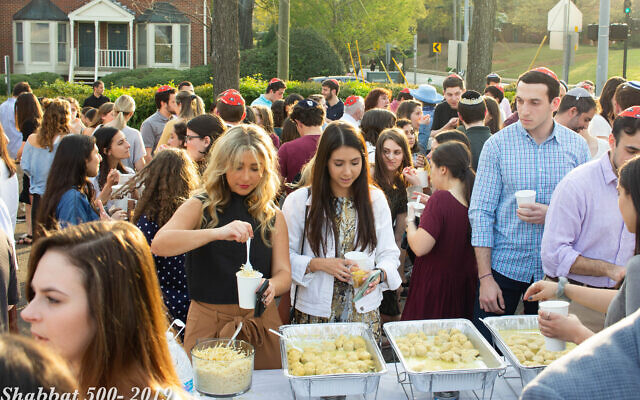
Rabbi Shlomo and Rebbetzin Shifra started Chabad DTU ten years ago to serve students on both campuses. They bring Jewish students together for social activities, and there is a joint Student Advisory Council that works on programming.
“By establishing a recognizable presence between the campuses, we are there for all students all the time,” Shifra explains. “Everyone on campus knows us, students play with our children, and even the campus police stop by to visit.”
Jacob Levin was a Georgia Tech member of the DTU Student Advisory Council, with leadership roles in most activities. “The Sharfsteins are close to the students, and everybody goes to Chabad for programs,” he says. “Because I like to study, Rabbi Sharfstein suggested and arranged for me to spend a summer at an entry-level yeshiva in Israel.” Levin is moving permanently to Israel this month, where he will initially study at Ohr Sameach, a yeshiva for Jews with little formal textual knowledge, but with an interest in studying classic Jewish texts.
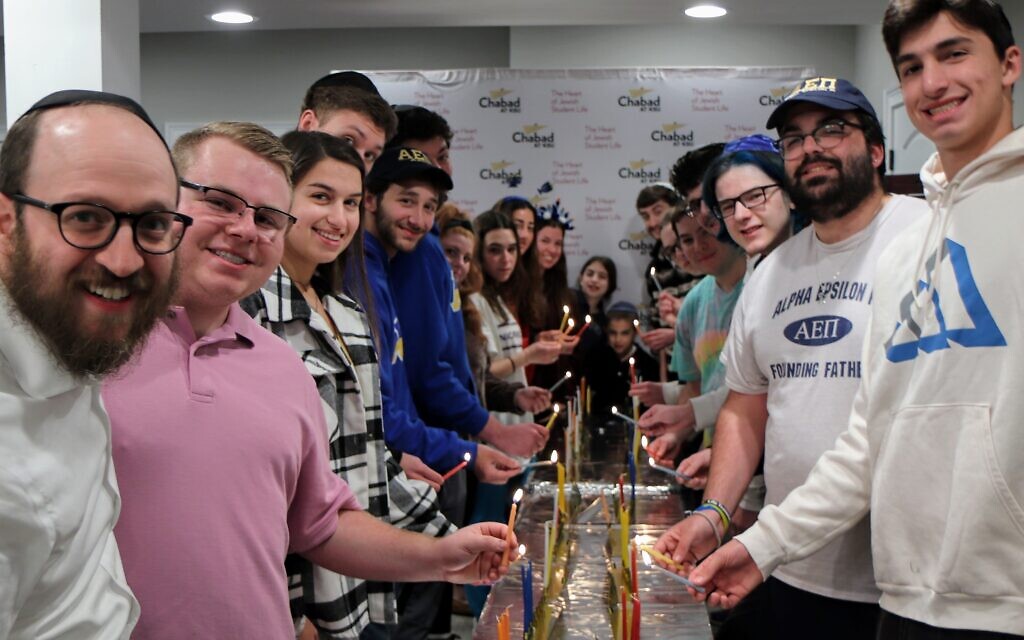
The number of Chabad centers on college campuses in the United States has skyrocketed since 2000, with more than 200 of them attracting students from all Jewish backgrounds. The Chabad Houses are located on or very close to the campuses they serve. “We want students to consider our house to be their house,” says Rabbi Zalman Charytan at Chabad of Kennesaw, which serves Kennesaw State University (KSU) students and nearby Jewish communities.
Every Chabad House celebrates Chanukah with a gigantic mid-campus menorah, attracting students, faculty and neighboring community members. Rabbi Charytan erects a separate menorah in downtown Kennesaw, hosted by the city’s mayor, which “is a source of pride for our students. The growth of Chabad on campus has definitely contributed to the growth of the surrounding Jewish community.”
“My wife Nechami and I moved here 14 years ago,” Charytan says, “and this is our permanent home. Our children were born here, and our door is open to students, 24/7.” The rabbi is available to drive students to a doctor or to the store, and the Charytans, like every other university Chabad family, bring homemade chicken soup to students who are sick and offer mezuzot to students for their dorm room or apartment doors.
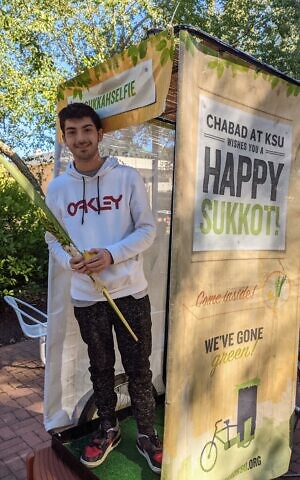
Lilli Jennison, a graduate of KSU, says, “I loved the holiday programs and often helped make challah on Thursday evenings for the wonderful Friday night dinners.” Jennison was a Sinai Scholar, participating in an 8-week program led by the rabbi and rebbetzin, and she attended the annual Sinai Scholars Shabbaton in New York’s Crown Heights, where she stayed with Rebbetzin Nechami Charytan’s sister.
According to the Chabad website, Sinai Scholars “provides a fresh and exciting context for Jewish life and learning on the university campus … to engage in an open community of study and self-discovery [toward becoming] passionate, informed Jewish leaders on campus and in their respective communities.”
Rabbi Michoel Refson, at the University of Georgia in Athens, describes Sinai Scholars as a program “to explore what it means to be Jewish in the 21st century.”
Scholars receive a stipend of $350 upon completing the course, a program that is offered at every university Chabad House. However, “a number of students do not accept the stipend because they believe they benefitted so much from the program,” Refson said. “We love it when students stop by just to play with our baby. We say, ‘We’re here for you as a family, so reach out if you need anything or just want to talk.’”
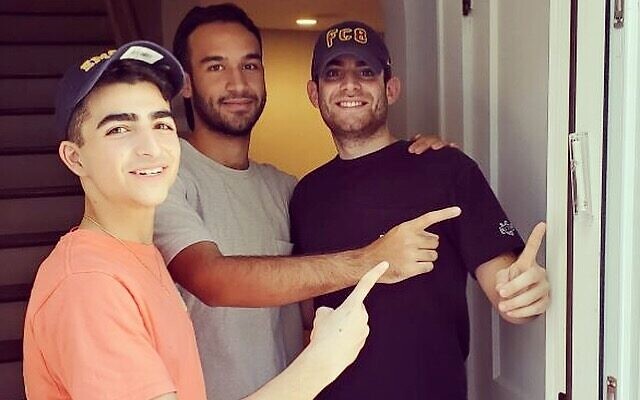
The Athens Chabad’s myriad activities include weekly Pasta and Parsha, CHABBQ, Thursday night cooking parties, learning opportunities, Shabbat services that also attract the general Jewish community and huge Friday night dinners. “Students miss their families, and we’re able to offer support, comfort, and fun,” Refson adds. “My wife, Chana, is very close to all the students, leading classes, cooking and baking with them. Female students are comfortable talking to her about private matters.”
The Refsons, who came to Athens 17 years ago, stress that “We Chabad co-directors don’t shy away from tough questions. Our goal is to guide students toward a deeper connection to one another and to Judaism. We are inclusive. We welcome every Jewish student, regardless of their different streams of Judaism. At Chabad we learn, pray, celebrate, eat and sing together.”
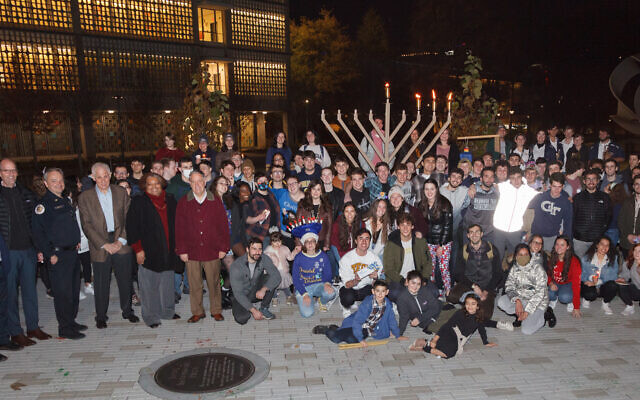
Rabbi Zalman and Rebbetzin Miriam Lipskier, who came to Emory in 2000, strive to “offer easy access to Jewish experiences. We believe that every person has a divine spark, and we help ignite that spark. The spark becomes a flame, and the flame becomes a fire. The importance of having a good time and celebrating together can’t be overstated,” Lipskier affirms. Shabbos services are coordinated and run by the students. The heavily attended upbeat Friday night dinners, are “more than a meal; we are a family, eating, singing and sharing words of Torah, especially from my wife, Miriam and students.”
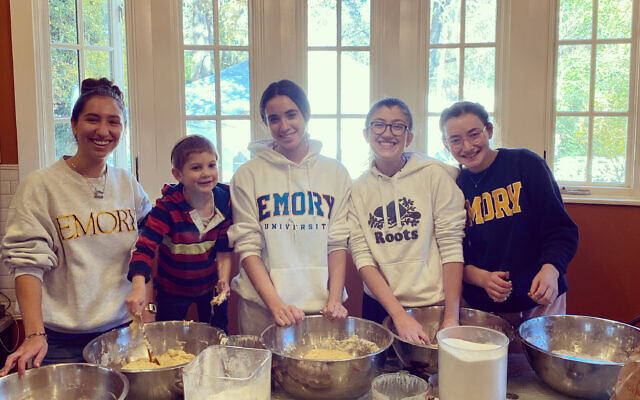
Yosef Oliker, who was an Emory student from 2005 to 2009, was initially drawn to the Chabad Shabbat davening, which, on Friday evenings, was followed by “One hundred students for dinner.” Oliker remembers that “the Lipskiers always opened their doors to me and other students and provided me with a consistent Orthodox Jewish experience.”
When Jay and Judy Kessler brought their daughter Miriam to Lynn University in Boca Raton, they stayed with Chabad co-directors Rabbi and Rebbetzin Liberow and their family over Shabbat. “Kids learn as much outside of class as inside the classroom,” Kessler says. “We knew our daughters would be cared for here.” Miriam eventually met her husband at the Chabad House, and her younger sister, Adira, says that the Liberows embraced her like one of the family. “I’m still close to them and visit when I can,” she says.
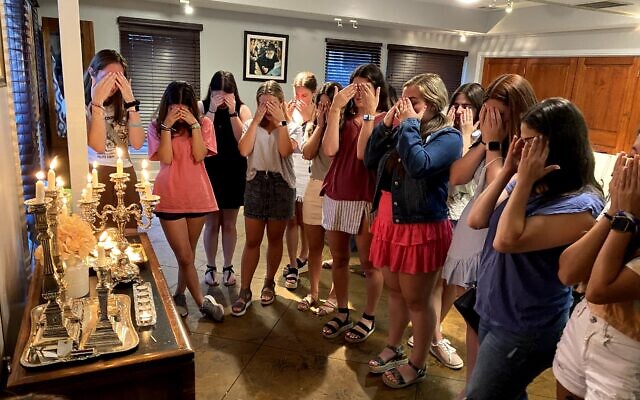
Yakov Jaffe, who attended both Tulane University and the University of Miami, credits Chabad — an acronym that stands for Chochmah, Bina and Da’at, or wisdom, understanding and knowledge — with shaping his adult life. “Chabad rabbis were pivotal in my enduring interest in Judaism and now in raising my own children. They modeled how Judaism can be a beautiful and solid part of family life. The meals, their nicely dressed kids for Shabbos and the rebbetzins all were inspirational.”
“The world around college students doesn’t necessarily incorporate wholesome values,” Jaffe says. “There we were with the rabbi, playing shofar on the way to class, and especially teaching us the meaning of prayers. Providing a social network was also a key component of Chabad campus life. It was all very powerful.”
- Education
- camp
- Local
- Chana Shapiro
- Chabad of Kennesaw
- Rohr Chabad House
- Chabad houses
- Rebbetzin Shifra Sharfstein
- Georgia state university
- Georgia Tech
- Chabad DTU
- Jacob Levin
- Rabbi Sharfstein
- Ohr Sameach
- rabbi zalman charytan
- Lilli Jennison
- Sinai Scholar
- Sinai Scholars Shabbaton
- Rabbi Michoel Refson
- University of Georgia
- Rebbetzin Miriam Lipskier
- Yosef Oliker
- Yakov Jaffe
- Tulane University
- University of Miami



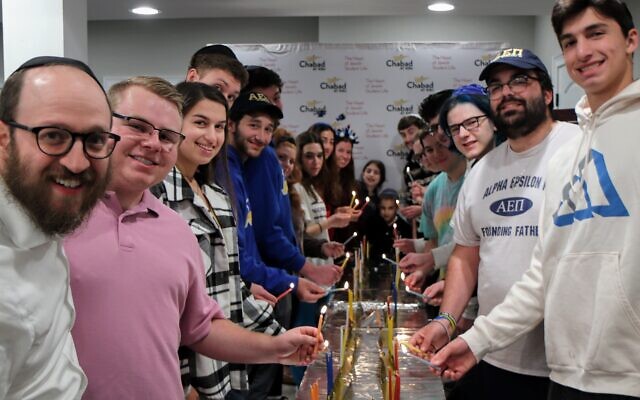
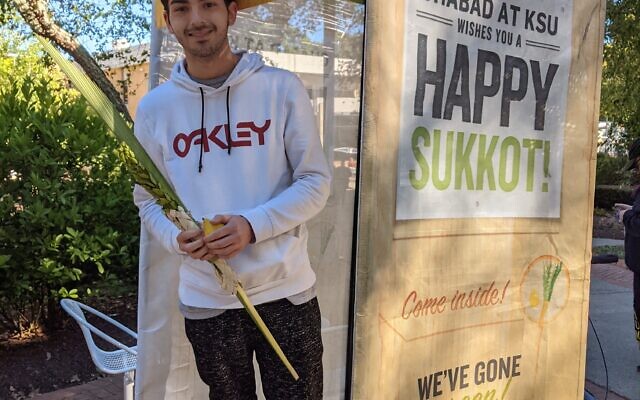
comments